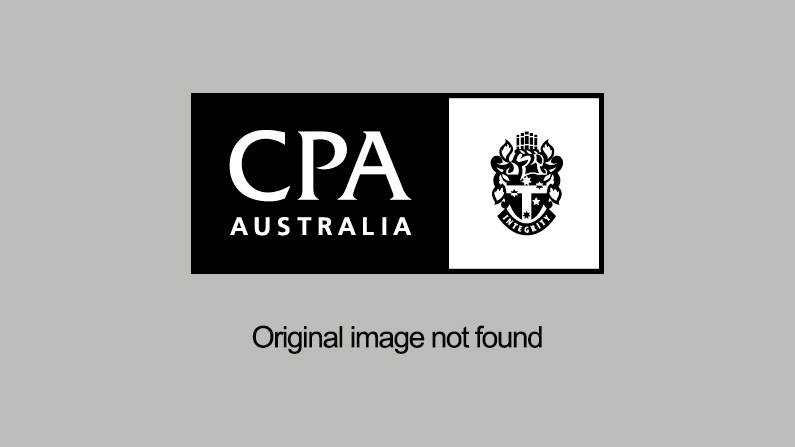MBA degrees enjoy great prestige in Asia, with the lure of bigger salaries and a passport to a new, high-flying career – but is a postgrad degree just the new normal?
The Master of Business Administration (MBA) brand is steeped in tradition and prestige. It’s a brand that has been built over 107 years, since eight people received the world’s first MBA degree from Harvard Graduate School of Business Administration in 1910.
Today the MBA is among the world’s most popular and respected postgraduate degrees and people are enrolling in ever-increasing numbers at the thousands of business schools across the globe.
Last year, Harvard’s MBA program enrolled 1859 new students from 9543 applicants. At a cost of more than US$200,000 over two years for tuition, room, fees, board and other associated costs at the Boston campus, Harvard is one of the most expensive places to get an MBA.
Add to that the lost income from taking a two-year hiatus from your job while you study full-time and, unless you can land a scholarship, that Harvard MBA could cost you in excess of US$300,000.
However, for many people, the significant time and financial investment is well worth it for the boost up the corporate ladder and higher earning power an MBA delivers.
At least, that’s the perception.
How much of that higher earning power can be attributed to having the three letters behind your name, and how much is due to the drive and dedication of the person willing to pursue an MBA is difficult to measure.
A growing market
What is known is that the MBA is a huge global business. It’s a market that is rapidly evolving and there’s no sign the growth is slowing.
In Australia, the MBA market is worth A$500 million, according to MBA News Australia, with 20,000 students currently studying at more than 30 Australian schools. The average MBA program in Australia costs about A$47,500.
In 1991, there were only nine MBA programs in China; now there are 236. The China Europe International Business School (CEIBS) in Shanghai is the top-ranked business school in Asia on the Financial Times (FT) ranking system.
Five Chinese schools are listed in the FT top 50, as well as two in Singapore, three in India and one, Sydney’s Macquarie Graduate School of Management (MGSM), in Australia.
Two other Australian schools make the Top 100 – University of New South Wales Australian Graduate School of Management (AGSM), ranked at 54, and Melbourne Business School, ranked at 76.
Globally, FT ranks INSEAD, which has campuses in France, Singapore and Abu Dhabi, as the world’s best.
Salary surge for graduates
Like many of the ranking systems, the 2017 FT list is based on surveys of the business schools and their 2013 graduates. Career progression and salary growth are among the criteria, and the ranking system suggests the school you choose can bring significant advantages.
Stanford Graduate School of Business alumni report an average salary of about US$195,000 three years after graduation compared to those from Incae Business School in Costa Rica, whose average salary is the lowest on the Top 100 table at about US$90,000.
However, it pays to look deeper into the statistics before making a decision on which school is right for you. Those at Incae may earn less on a dollar figure, but it represents a 142 per cent salary increase compared to what they were earning before their MBA. That ranks the Costa Rican school at number five in terms of value for money compared to Stanford’s 74th place with a 95 per cent salary increase. Stanford is the number one school for career progression but Incae still fares well in seventh place.
Asia setting MBA benchmarks
MBA News Australia founder and editor Ben Ready says Asia is driving a lot of the growth in MBAs through heavy investment in its business schools. That investment, he says, has lured excellent students and achieved great results.
“Asia is setting the benchmarks for what a great MBA should be,” says Ready. “Within a decade or so it could well be challenging some of the old global favourites and elites that have held the crown for so many years.”
Ready warns it can be easy to get bogged down by the status of a business school and suggests looking for the school that best fits in with your life and offers prime value for what you can afford.
The INSEAD campus at Fontainebleau in France offers the world’s highest ranked MBA.
The INSEAD campus at Fontainebleau in France offers the world’s highest ranked MBA.
“Ultimately, the prestige of the school you got your MBA at will only be one part of the decision to hire you,” says Ready. “Sometimes people put a little too much credence on the school; [more] than is warranted. An MBA shows you have the enthusiasm and desire to further yourself in your career and demonstrates you can commit to the work involved to achieve your MBA.
“It is a clear statement of your intent to your current or future employer that you are ready to take your career to the next level.”
The Australian Institute of Business (AIB) offers one of the cheapest accredited MBA degrees in Australia. Its Agile MBA is all provided online at a cost of about A$26,000, compared with the more than A$80,000 you would pay at any of the three FT-ranked Australian universities. It’s also the largest MBA school in Australia, with more than 4300 current students and in excess of 4500 global alumni.
AIB’s joint CEO Joel Abraham says while there are no guarantees, evidence does show an MBA increases your chances of success.
“It’s a table stake,” says Abraham. “It’s showing how seriously you are taking your profession and your career.” The MBA, he says, is a marathon that requires hard work over a substantial period of time and “only those with the true belief to achieve their desire will see it through”.
He says people will determine prestige on many different factors – is it the highest fees, or the one with most PhD holders on staff, or the one with the best research reputation? Abraham suggests outcomes are what matters most.
Attempting the triple jump
Some people choose to study their MBA because they believe it will help them in the global career market. Others hope to change industry or improve their salary through career progression. A smaller number want to make the triple jump – changing sector, salary and geography all in one bold move.
The MBA is considered a generalist business degree for those with a specialist trade – whether you’re an accountant, a lawyer or a hospital administrator.
“As you develop you get more skills and, as you become middle or senior management, you use less technical knowledge and the skill set required for those roles changes,” explains Ready.
“As a lawyer you might need to learn more about the finances, if you are in finance you may need to know more about the law, and if you are in human resources you may need more business strategy. An MBA takes you into all those areas.”
A survey of AIB’s alumni in 2017 found 40 per cent of alumni have changed job function since starting their MBA; 22 per cent have changed industries; 47 per cent received a pre-tax annual income increase within 12 months of graduation and an average annual income growth of 11 per cent after graduation.
In addition, statistics from the Graduate Management Admission Council’s 2016 Year-End Poll of Employers Report found nearly eight in 10 employers plan to hire MBA graduates and 71 per cent of employers found recruiting graduates with a business masters program was a priority in their hiring plans.
Where MBAs don’t rate so highly
However, for Hudson’s accounting and finance recruitment specialist, Barry Hodson, the MBA is rarely part of his key selection criteria.
He says jobs in the finance sector are hotly contested and employers are looking for professionals with relevant industry experience as well as soft skills such as adaptability, critical thinking, the ability to influence, and communication skills.
Hodson says while there are many CFOs without an MBA, very few would be without a CPA designation or equivalent. An MBA, says Hodson, is for those who want to extend out of their area of expertise and move into broader roles in the business world.
“Ultimately, the prestige of the school you got your MBA at will only be one part of the decision to hire you.” Ben Ready, MBA News Australia
Higher education researcher and policy analyst at the University of Melbourne, Dr Gwilym Croucher, says almost 40 per cent of people aged 25 to 34 now have a bachelor degree, compared to 25 per cent of the total working population. In the 1970s that bachelor degree percentage was about 3 per cent.
Just as there has been phenomenal growth in the number of tertiary-qualified people in the workforce, the number of postgraduates has also ballooned.
“International evidence shows having a bachelor degree is extremely beneficial over the course of a working life,” says Croucher. “The 2011 [Australian] Census confirmed that having a degree increases your income by A$1 million to A$1.5 million, or more, over the course of your lifetime, compared to if you just completed Year 12. Postgraduates get more than that again, but not at the same rate.”
Croucher says the increasing proportion of workers with university qualifications means saturation point is approaching, but it will take many years before that filters through to the labour market.
The MBA’s golden age
If an MBA is no longer rare, does it still hold value? Has the exploding number of schools offering an MBA meant a decline in teaching standards?
According to an article in the Financial Times (FT) this year, salaries commanded by MBA graduates after three years back in the workplace increased by the largest amount in a decade.
It reported the highest paying sector for MBA graduates from schools on the FT Top 100 list was financial services, followed by e-commerce, and says the past three years have been “a golden age” for MBA jobs, as sectors not traditionally associated with hiring from business schools now seek out candidates with business qualifications.
However, an article in The Economist in June 2016 says the number of MBAs awarded by business schools in the US has increased seven-fold since 1970, and the employment market is struggling to keep up. It suggests other Masters-level degrees may serve some people better in their search for an executive-level job.
Taking the alternative route
Networking, global study opportunities and broadening of perspectives are among the sought-after MBA offerings. However, as technology brings the world closer together, these opportunities are readily available through non-MBA routes, including online networks and forums, as well as workshops and conferences.
While there is some evidence the brand of an MBA school can propel you further, it’s not the only consideration. An MBA can be valuable for developing skills such as negotiation, diplomacy and personal branding. Most MBA graduates surveyed by FT report a high level of satisfaction, regardless of the school they attended.
“There’s no golden ticket for going to a prestigious university,” says Croucher.
What’s important when selecting a school, he says, is ensuring it links to your area of specialty and that the course content draws on research, knowledge and understands contemporary practice.
Ready rates subject matter, teacher quality, sharp content and access to networks as among the features to look out for.
He says one of the real values of an MBA is the strong friendships forged under pressure.
“The strategy or finance theory might be outdated 10 years on, but you’ll always have those relationships,” he says.
Ready believes the MBA’s future remains strong. The last four years have indicated a trend towards the emergence of specialization, but Ready claims much of it is driven by marketing from business schools trying to differentiate themselves.
“There was a bit of a lull after the GFC [global financial crisis] because a lot of people get a company to fund their MBA, and a lot of companies had tightened their belts,” says Ready.
“So there was a little smell around the MBA at that time, but it has taken the mantle again as the postgraduate business degree to have.”

Does an MBA still help you climb the corporate ladder and give you higher earning power?
“Those three letters are so telling about the quality and the pedigree of the individual.”









